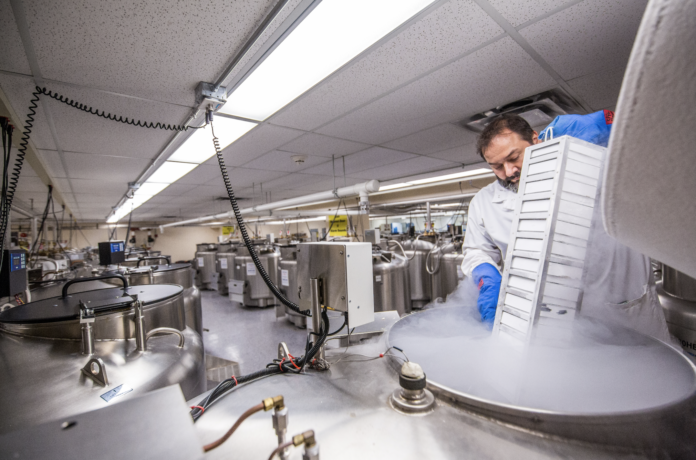
Improving health and avoiding disease is one goal around which the whole world can unite, since disease knows no borders. But, during the last century, people are healthier and living longer than ever before thanks to drastic advancements in health research. At Hamilton Health Sciences (HHS), in partnership with McMaster University, our researchers have led some of the great health discoveries of our time. We lead a team of investigators – from across Canada, and in another 100 countries from the six inhabited continents – who are working together to make life better for all people around the globe.
Cutting Stroke in Half
Can you imagine a world without stroke? Hamilton Health Sciences’ teams can, and they’re leading a mission to make that vision a reality.
While research has made great strides in finding new and better ways to treat stroke, prevention is even more important. Experts at the Population Health Research Institute, in partnership with McMaster University, has led worldwide studies showing that certain safe, inexpensive, easily accessible medications (e.g. blood pressure-lowering and cholesterol- lowering drugs) are better at reducing the risk of stroke than previously believed. Together, these medications have the potential to prevent 50 per cent of all strokes, which equates to tens of thousands of lives saved each year.
Treating Hip Fractures like Heart Attacks
What do broken hips and heart attacks have in common? Like a heart attack, a hip fracture is a medical emergency but has not been considered as one until now. A hip fracture puts a lot of stress on the body, creating the potential for a number of life-threatening issues. Yet, these patients aren’t treated with the same level of urgency as other emergencies and often have to wait several days for surgery.
Teams at the Population Health Research Institute of Hamilton Health Sciences and McMaster University are testing the theory that hip fracture patients who receive surgery quickly – within 24 hours of their fracture – have a better recovery and experience fewer issues. It also means patients spend less time in hospital, reducing healthcare costs and making room for more patients to receive the care they need, sooner.
Canada’s largest Biobank
Hamilton Health Sciences is home to Canada’s largest research biobank, a literal vault of human DNA housing more than three million samples collected from patients around the globe. The facility provides an information-rich, cellular and molecular database that supports our researchers in solving some of the world’s greatest health challenges, including heart disease and stroke.
With more than 100 international studies being led by Hamilton Health Sciences and McMaster University researchers at any given time, the biobank – developed over 20 years – has become an invaluable knowledge repository. It can provide our researchers with key information on half a million patients, at their fingertips. These samples are used for analysis of genetic biomarkers that predict the development of various diseases and provide new insight in to the causes of heart attacks, strokes, heart failure, cancer, diabetes and dementia. Samples are stored in liquid nitrogen so that they can be used for decades to come.
The biobank – and the team of experts who support it – is a huge asset to health research in Hamilton, and beyond,” says Dr. Guillaume Paré, deputy director of the biobank and medical biochemist at HHS. “It has enabled some of our most significant clinical trials, many of which have had a global impact.”









